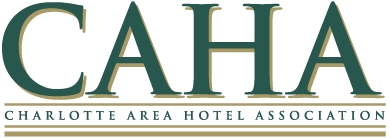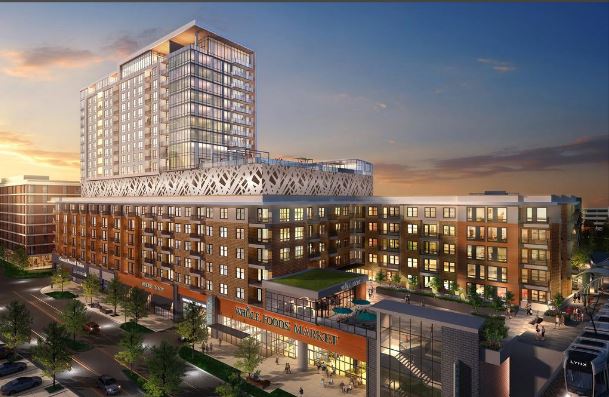A plan to build an indoor amateur sports complex near Bojangles’ Coliseum fizzled in 2014, but Charlotte tourism officials are trying again, hoping the promise of millions of dollars of public money will entice a developer.
The plan calls for a “destination-defining” indoor facility, with room for 10 high school regulation basketball courts and the ability to convert the space for 20 volleyball courts. There would be seating, restrooms, and food and beverages for sale.
The new plan would allow the sports complex to be built anywhere in the city – not just in economically struggling east Charlotte.
But it’s unclear whether the amateur sports complex would be the best use of the money, which would come from hotel/motel taxes that are restricted for tourism.
Would the new complex create new business – or just take away existing tournaments and events from the publicly owned Charlotte Convention Center?
There is also intense competition for basketball and volleyball tournaments, as Rock Hill is starting construction on a facility that’s almost identical to what Charlotte is considering.
“What kind of return is the city going to get?” asked Ron Esser, co-owner of Carolina Courts, a private indoor basketball and volleyball center with locations in Indian Trail and Concord that would be a competitor to the Charlotte venue. “It’s going to be tough to keep 10 courts completely full. There will be down times.”
He said each of his locations has four basketball courts each.
“We are carrying debt on eight courts of $5 million or $6 million, and we are barely making it,” he said. “If we had to carry $12 million in debt, we would be bankrupt in a year.”
Filling buildings
Charlotte’s first attempt at an indoor amateur sports complex was focused on the parking lot behind Bojangles’ Coliseum and Ovens Auditorium. The city wanted to build a hotel and gymnasium on the site, but it received interest from only one private developer, Florida-based GoodSports. But GoodSports never secured the financing for the project.
The city was prepared to spend up to $25 million on the project, but the deal fell apart.
The Bojangles’ site is now off limits because the Charlotte Area Transit System wants to build a light-rail line and station through the parking lot.
The Charlotte Regional Visitors Authority gave City Council’s economic development committee an update on the new plan last week. The city and the CRVA hope to enter into an agreement with a developer by the end of the year, if council members approve the plan.
The CRVA’s presentation did not give an estimated cost of the complex, though Rock Hill is spending more than $20 million. The CRVA said the private developer would have to pay at least half of the construction cost.
The CRVA already hosts large basketball, volleyball and cheerleading tournaments at the Charlotte Convention Center uptown. The center’s cavernous exhibit halls are converted to temporary courts, and the building can host numerous games at once.
The convention center’s bathrooms don’t have locker rooms with showers, but there is a food court already in place.
The CRVA said basketball, volleyball and cheerleading events generated 15,000 hotel room nights last year. That’s about 10 percent of the convention center’s total business for the year, which was 142,000 hotel room nights.
Building a new amateur sports facility could shift those events to a private developer and away from the taxpayer-owned Convention Center, which has seen its attendance and events drop since 2011. The CRVA is planning a $100 million renovation of the center to attract more business.
“We are about bringing business into the community, whether it’s in our building or other buildings,” said Tom Murray, chief executive of the CRVA. “We want to bring business that will fill multiple buildings. We think we’re desirable enough to continue to attract events (at the Convention Center).”
The new building would also face competition from Rock Hill’s new indoor sports complex, scheduled to open at the end of 2018. The Rock Hill complex will have 17 volleyball courts, 10 basketball courts and a championship arena with seating for 2,500 people.
“Ours is supposed to be the biggest in three states,” said John Gettys, chair of the Rock Hill Sports Commission.
In an interview, Gettys joked that Charlotte shouldn’t build its own indoor sports facility – “You don’t want to do that,” he said, suggesting that a new Charlotte facility would compete with Rock Hill’s clients.
But Gettys said he thought the two facilities could complement each other, even if Charlotte built its complex in south Charlotte, within 10 or 15 miles of Rock Hill.
“If you have them in some proximity, you can bring in even better tournaments,” he said.
Murray agreed.
“The truth is there is a lot of competition in the amateur sports business,” he said. “We hope to build a venue that’s highly competitive, and additional facilities (such as Rock Hill’s) might supplement what we do. These tournaments are so big that they need multiple locations.”
The CRVA said amateur sports overall – including sports such as softball and soccer – generated 215,000 hotel room nights last year.
Steve Harrison
Charlotte Observer










